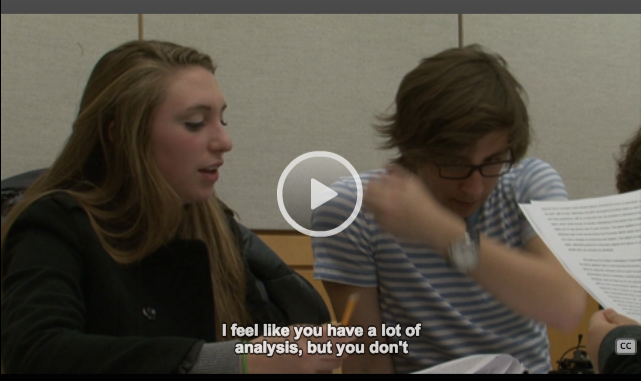|
|
Revising
“I love reworking, I love editing, love love love revision, revision, revision, revision.” (George Carlin, "George Carlin's Last Interview")
Many inexperienced writers make the mistake of thinking of "revision" as a simple rewording exercise. Indeed, student writers frequently ignore the revision stage altogether and focus on what could more properly be labeled "editing" concerns. Experienced writers, on the other hand, usually spend most of their time at this stage, writing and revising multiple drafts. These writers use the revision process to re-vision or re-think and develop their papers. Click here to see how novice and experienced writers describe revision differently.
Revising Toolbox |
Start Global
Move from global to local revisions. Revise first for organization and logic, then for clarity and effectiveness, finally for style and correctness. “Higher Order Concerns (HOCs) and Lower Order Concerns (LOCs)” from Purdue distinguishes between higher order or global concerns and lower order or local concerns and offers good checklists for each. Once you are ready to move to fine-tuning your sentences, “Writing Tips: Five Editing Principles”, from the University of Illinois, offers some practical tips for how to stream-line your writing, including the elimination of "to be" verbs and the addition of sentence variety. |
Do A Reverse Outline
To check your organization, make an outline of what you have written. This page from the Writing Studio at Duke University gives a good example of how a reverse outline works. The folks at the Purdue OWL describe how reverse outlining is a technique for taking notes as well as revising here. |
Present It
To check your logic and persuasiveness, talk out your paper’s argument with others. |
Ask Questions
Ask yourself questions about what you have written.
- If your assignment requires you to address a competence statement, have you done so fully?
- Do your main points connect logically to one another?
- Are there smooth transitions between ideas that show how they are related?
- Did you answer the question your teacher posed in the prompt?
- Is your thesis statement fully justified by your body paragraphs?
- Is there any information in your paper that is extraneous or unnecessary?
- Are there any points that lead nowhere or even contradict the main point you are trying to make?
- Is there enough background information present that a reasonably intelligent person could follow your paper even if he or she were unfamiliar with your topic?
- What information should be added?
- What terms need to be defined?
- What ideas, characters or figures need further explanation?
For more questions, see “Higher Order Concerns (HOCs) and Lower Order Concerns (LOCs)” from Purdue. |
Researching
As you ask yourself questions and take a step back to think about your paper, you will likely find that you need to do additional research. Now is also the time to do any research you decided you needed while drafting. Be prepared for your research to sometimes lead you to revise some of your claims or even your thesis. |
Remember Your Goals
Does what you have written accomplish your goals? How do you know? |
Remember Your Audience
Imagine your audience’s response to what you have written. What might they be confused about? What might they disagree with? Where might they want more detail? What might you not need to tell them? |
Take Breaks
Give yourself time between drafts so you can come back to your paper with a fresh perspective. |
Get Another Pair of Eyes
Ask a reader you trust to look over your paper. Things that make sense to you because you know what you want to say may be unclear or misleading to your audience. DePaul's Writing Centers are the perfect place to find skilled readers. The Writing Center tutors are more than willing to lend an objective eye to your work and offer suggestions for how it can be improved. You can work with them either in person or online.
This video shows how your peers can also provide you with useful feedback:

|
|
How to Write a Paper
Inventing
Organizing
Drafting
Revising
Editing |